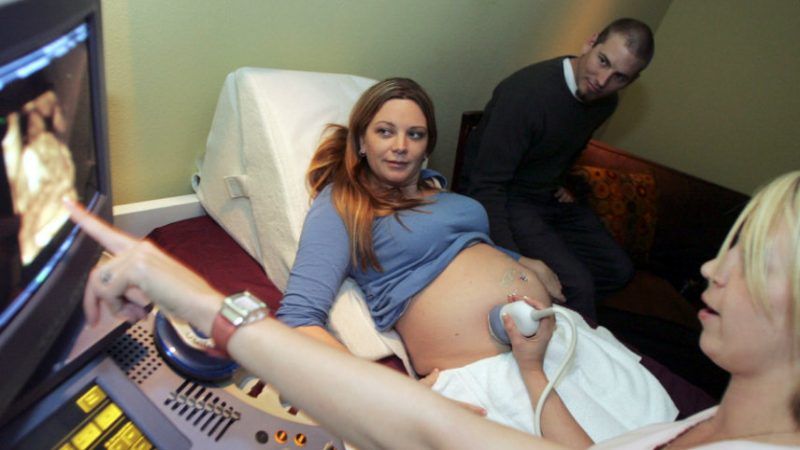Supreme Court to Weigh Rules for Anti-Abortion Pregnancy Centers in California
Crisis pregnancy centers in California say the state's "Reproductive FACT Act" violates their First Amendment rights.

The U.S. Supreme Court has agreed to hear a case involving California's regulations for "crisis pregnancy centers." These generally religious, always anti-abortion centers have come under fire in the past for misrepresenting themselves as comprehensive reproductive health clinics while providing little in the way of medical services. But in trying to stop some centers from fraudulent advertising, the state of California passed legislation that may violate their First Amendment rights.
According to NARAL ProChoice America, California has around 170 crisis pregnancy centers, with around 40 percent licensed as medical clinics.
Under a law that took effect in January 2016, California pregnancy centers are required to disclose whether they are licensed medical providers or merely offer ancillary services (such as counseling or a clothing bank) to pregnant women. That part isn't controversial. But the law also requires crisis pregnancy centers that are licensed health clinics to notify patients about state programs that can help low-income women pay for prenatal care, contraception…and abortions. Clinics that fail to post the required state notice face civil penalties.
Naturally, the anti-abortion crowd running most of California's crisis pregnancy centers doesn't want to be forced to provide pregnant women with this information. In October 2015, two centers—A Woman's Friend Pregnancy Resource Clinic of Marysville, California, and the Crisis Pregnancy Center of Northern California—filed a suit challenging the law.
The groups, represented by the Pacific Justice Institute, claim the law "unconstitutionally compels [crisis pregnancy centers] to speak messages that they have not chosen, with which they do not agree, and that distract, and detract from, the messages they have chosen to speak." In addition, "disseminating the mandated state message…is inconsistent with plaintiffs' religious convictions." The suit says the regulations violate both freedom of religion and freedom of speech.
Since then, several other groups have brought lawsuits challenging the same law. On Monday, the Supreme Court agreed to hear one of these cases (National Institute of Family & Life Advocates v. Becerra).
The Supreme Court's review will focus on whether "the disclosures required by the California Reproductive FACT Act violate the protections set forth in the Free Speech Clause of the First Amendment, applicable to the States through the Fourteenth Amendment." Previously, both the district court and the U.S. Court of Appeals for the 9th Circuit sided against the National Institute of Family & Life Advocates pregnancy center.


Show Comments (107)